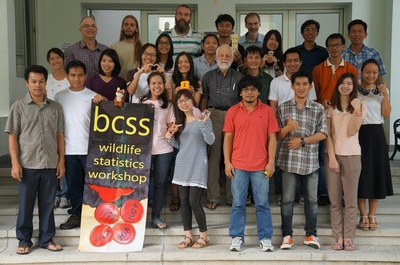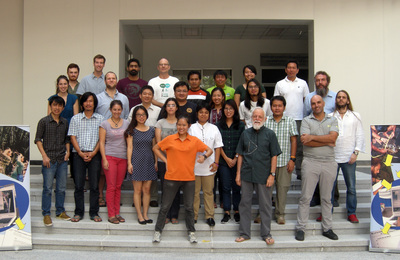Coursework and academic calendar
OverviewSemester 1: August - December Semester 2: January - May
The MSc programme usually takes 2-3 years to complete. PhD takes about 4-5 years to complete. Students generally focus on coursework and developing their research proposal during year one. Thesis is undertaken year two, and usually involves capture of primary data in the field. Exact timing depends upon climate, funds availability, and other factors. All students are required to publish in a peer-reviewed journal in order to attain MSc, with at least two papers required for PhD. Special intensive courses are offered from April through July in collaboration with University of Nebraska - Lincoln and the Biodiversity Conservation Society Sarawak (BCSS). These courses are hugely popular. While mandatory for all students in the programme, some spaces are usually available for students, wildlife technicians, and faculty from other institutions. Download the Academic Calendar 2023 |
Programme objectivesThe programme aims to prepare students for a career as researchers and/or managers of protected areas. Coursework lays the foundation for enabling students to conduct independent research for their planned thesis projects and future work after graduation. Peer reviewed publication has been a requirement of the programme for several years now, and is essential for any scientific field such as ours. At least one peer-reviewed publication in an international journal with an impact factor is required for the MSc. and at least 2 such publications are required for the Ph.D. degree.
Typical course plan
|



